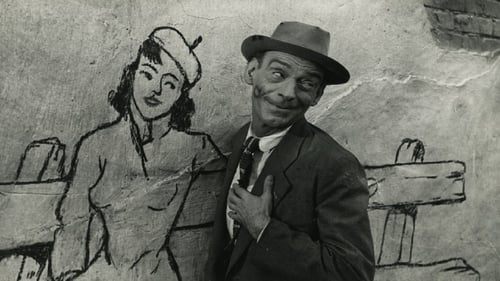
Csermlényi Viktor
Karoly Makk's heartbreaking story of two unmarried sisters who cast wistful glances back at their lives, but still believe in hope and love, earned an Academy Award Nomination for Best Foreign Language Film in 1974. In this follow-up to the director's internationally acclaimed Love, Makk once again exhibits his extraordinary skills at drawing emotionally compelling performances from his talented female leads. Makk's film opposes the bleakness of the outside world with passion, love, and loyalty.

Pötzl professzor
The film is a story of a double journey. The main character of the first journey is the author himself, who, while sitting in his customary café, suddenly realises that he has hallucinations. The psychologist reassures him that all this is merely repression. The symptoms, however, appear again. Soon it turns out that the author has a brain tumour. Professor Pötzl in Vienna suggests operation right away. The intervention, through which he is awake, is carried out in a Stockholm clinic.

Fölcint Lajos

Dezső
Kerekes (Antal Pager) believes he is wanted by the police when his friends play a practical joke in this unusual comedy drama. He returns to his hometown where he was accused of turning a Jewish druggist and the druggist's wife over to the Nazis. With his friends following him, Kerekes tries to find out what became of the couple after they were deported. After being subjected to a mock trial by his friends -- and found guilty -- Kerekes becomes despondent and attempts to kill himself. Flashbacks and hallucinations are employed to tell this story that occurs during the Eichmann trial. Both the film and Antal Pager gained some unwanted publicity when a Variety article from April 23rd, 1967 accused Pager of being a Nazi collaborator for his role in an anti-Semitic film during World War II.

Óbori - igazgató
Eve, the old professor zsongják beautiful wife surrounded by colleagues. When the professor's going away for a conference abroad, intensifying the suitors attempts. Eve, however faithful to her husband, so that the denials are increasing. Oddly enough, the rejected accidents ...

Joseph II, the enlightened Austro-Hungarian emperor, entrusts his loyal and confidential subject, Ráby Mátyás, formerly a treasurer, to examine the abuses made by the magistrates of Szentendre and Izbég. Following his old friend, Dacsó Marci's directions, Ráby reveals horrible robberies, tax evasions, frauds, and other illegal acts having been committed against the people.

major
The poetic love story depicting everyday life from a micro-psychological aspect takes place in the 1910s. Sándor, editor of the local paper, serves as a foot soldier on Sundays, but spends weekdays playing billiard and courting women. One Sunday afternoon - in soldier's uniform - he meets Vilma, the beautiful maid, whose honesty and chastity turns the adventure to love.

Üzletvezetõ
The flat of Doctor Bartha is wetting, the Communal Management Enterprise does not act, the doctor and his wife are at the edge of divorce. Géza would marry his colleague, Kató, but mum is sick, the apartment is small, no money. Uncle Károly is fed up with unsuitable, charlatan business managers. Vali would marry, in order not to live on Titi and Piri any more, but the selected man wants to have a woman with her own apartment. All of them have a chance by the lottery, especially by hitting twelve scores.

Szilvay professzor
Liliomfi is a 1954 Hungarian comedy film directed by Károly Makk. It was entered into the 1955 Cannes Film Festival. Set in the "Golden Era" of the wandering Hungarian theatre troupes. Mariska and Liliomfi fall in love without suspecting that Mariska's foster father, Professor Szilvay, is also Liliomfi's uncle. Soon the couple must contend with the professor's plan to make Liliomfi give up his "unrespectable" profession of acting by exposing the professor's hypocrisy, greed, and tyrannical selfishness.

Králik
A few days from a daily life of a regular school in Hungary during fifties.

Jackson
On the Spring of 1945 the Jackson circus is heading towards the border with the clown Peti and Aida, the elephant. They have to play for the Hungarian Fascists, while Peti is hiding the Jew Annuska and Sanyika.

count Kolowrath
March 15, 1848; the revolution breaks out in the town of Pest. Yet at café Pilvax, in among he revolutionary youth, there is the informer of the imperial court as well. Hearing the news of the attack led by Jellasics, the inhabitants of the villages pour into the national army, and Hajdú Gyurka also escapes from his landlord. Petőfi is there at the camp of the revolutionaries, raising them to enthusiasm with his poetry.

Kanonok
Különös házasság is a 1951 Hungarian drama film directed by Márton Keleti. It was entered into the 1951 Cannes Film Festival.

Réz Győző
"Silver lute", the choral society of the Vác Engine Works, led by Réz, the conductor, is preparing for its 25th anniversary. All the important members of the society, among them Seregély, a magician, are, at the same time, all "fathers" of Zsóka, daughter of a former colleague, who has been killed in an accident, and whom they then adopted.

trouper

Fõpincér a Koronában
In a small town in the countryside, the election of the president of the restaurant trade association is under way. The two rivals, Dénes Kövi, owner of the elegant Korona restaurant, and Antal Bálint, owner of the staid Makkhetes restaurant, are putting all their eggs in the basket for the title. Taking advantage of this situation, Pál Balázs, who has become the manager of his crippled painter friend, has a portrait commissioned with Dénes Kövi.

Inas
Pálma, the spoilt daughter of the rich manufacturer, is a true monster in the house. The house staff flee her and even her father can hardly wait to marry her off.












